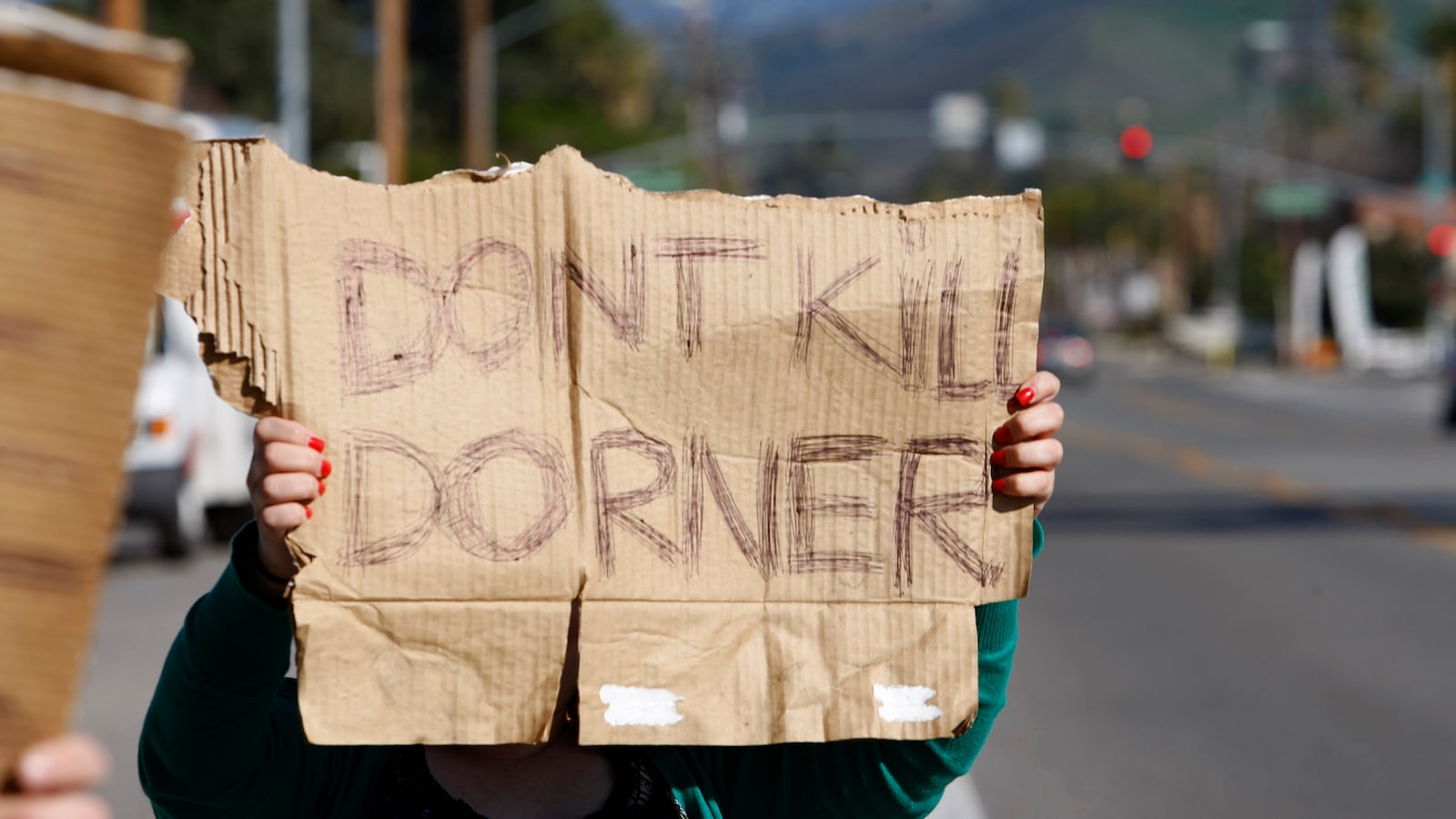As one of the biggest manhunts in recent U.S. history concluded Tuesday night with the apparent death of Christopher Dorner, one of its unintended consequences has been to bring to the surface tensions between minorities and the Los Angeles Police Department that have long simmered just out of sight. While everyone is in agreement that the killing of four innocent people is wrong under any circumstances, some people sympathized with Dorner—and some were even hoping that he would get away—because of their own experiences with members of a police force that for years has had a reputation for being exceptionally brutal to black and brown citizens.

It only got worse after police searching for Dorner mistakenly shot two women who were delivering newspapers in the early-morning hours last week. Some L.A. residents began wearing T-shirts that proclaimed they were not Christopher Dorner. Soon bumper stickers appeared, and a friend of mine who lives just outside the city told me that under no circumstances was he leaving his home until the manhunt was over.
Joe Jones, a former black LAPD officer who served nine years in the same department as Dorner, briefly posted his own manifesto on Facebook on Tuesday morning, stating that his experiences on the police force were very similar to those Dorner described in his. Jones too claimed that when he reported abuses by other officers, he was punished and ostracized and also was forced to leave the department.
These responses may anger those who feel the only proper response in this situation is the denunciation of Dorner. But nowhere is the old saying that there are two Americas—one black and one white—more evident than in the interactions between white police officers and black males, and that fact underlies the emotional reaction of many people to this case, regardless of its precise details.
My own personal experiences over the years would be recognizable to almost any black man, particularly those who’ve encountered the LAPD.
I had my first run-in with the LAPD in the late 1970s. By then I’d moved around the country quite a bit and was not unfamiliar with law enforcement. But hailing from one of the roughest neighborhoods in Cleveland, I knew the main rule of interacting with police: live to tell the tale and preferably without getting an officer’s foot broken off in your ass.
One night a few weeks after I moved there, a friend and I were returning to the apartment complex where we lived, which was in one of the better Hollywood neighborhoods. We were both well dressed and returning from a boxing match (he was a promoter) when he pulled his late-model Rolls-Royce into the parking lot of an all-night supermarket. It was about 2 a.m. As we got out, a cop car pulled up, and both officers ordered us to lay face down on the ground, where we remained for the better part of 15 minutes.
The night manager of the supermarket initially came out and attempted to intervene. He said something to the effect of, “Hey, I know those guys, they live right over there!” One cops shouted at him to shut up and get back in the store—which he immediately did.
After what seemed like an eternity the cops, after thoroughly searching the Rolls, allowed us to get up off the pavement. My friend, who’d been in L.A. for years and was accustomed to being pulled over because of his vehicle, simply brushed the dirt off the lapels of his suit while saying, loud enough for the cops to hear him, “Well, it looks like I’m going to have to make that white bitch of mine buy me another new suit.”
That was just one of many experiences. After a few years I gladly left L.A. for New York, but I came back in the early ’90s, and nothing had changed. The riots after the Rodney King verdict were fueled in large part, of course, by the absolute hatred black and brown citizens felt toward LAPD officers.
It’s not just L.A., of course. When the issue of “driving while black” surfaced back in the late ’90s, I assisted other journalists of color in the design of a test in which four black law-school students rented a car and started driving west from New York City. They weren’t in New Jersey for more than a half hour before they were all standing with their hands up on the side of I-80. The stink these brave young blacks raised was one of the events that resulted in legislation designed to put an end to the racist practice of profiling.
But as most young black males can attest to even today, racism doesn’t just go away because a law is enacted—it morphs, shifts, and comes right back in guises both subtle and overt.
Despite the LAPD’s advances over the years, I’d bet that an overwhelming majority of minorities would still call it a racist institution—and when those feelings build up for long enough, it drives some people over the edge. Black literature is replete with stories such as Pearl Cleage’s play Bourbon at the Border, which tells the story of a black Howard University student who, along with his girlfriend, went south in 1964 to work on a voter-registration drive. Segregationists kidnapped them both, raped the girlfriend, and beat the young man so badly, it left him with a limp. Years later in Detroit, it all floods back into his consciousness and he quietly goes on a killing spree. Of course he only killed whites.
Humiliation and unjust treatment have a way of eating away at one’s soul. No matter the exact facts of Dorner’s case, he had been stewing over this for years. And while police brass are now characterizing him as always having been some kind of a nut job, he must have been somewhat sane at one point. Otherwise, how did he get hired as a cop?
It’s frightening that some people of color were rooting for him, turning him into some kind of revenge-seeking cult hero, but given the perspective, the lens of personal experience through which many nonwhites viewed the situation as it unfolded—I’m not all that surprised. However much we pat ourselves on the back for being “post-racial,” whatever the hell that means, for electing a black president, this is still a part of what it is to be black in America.






